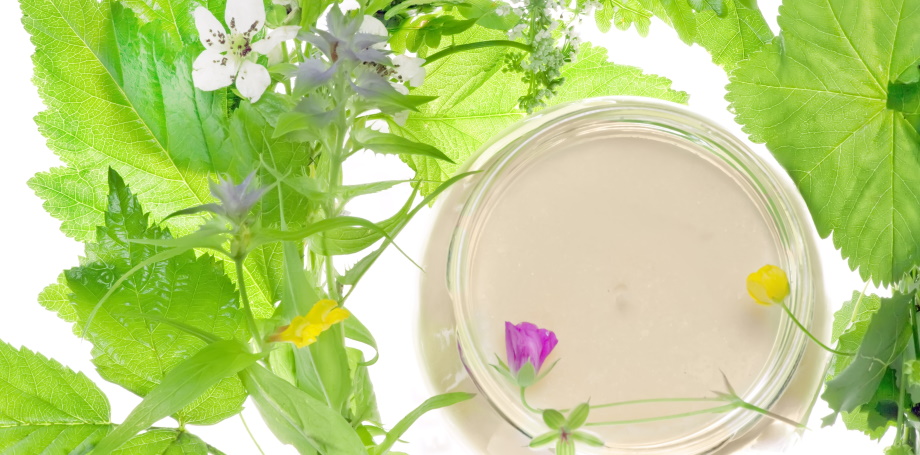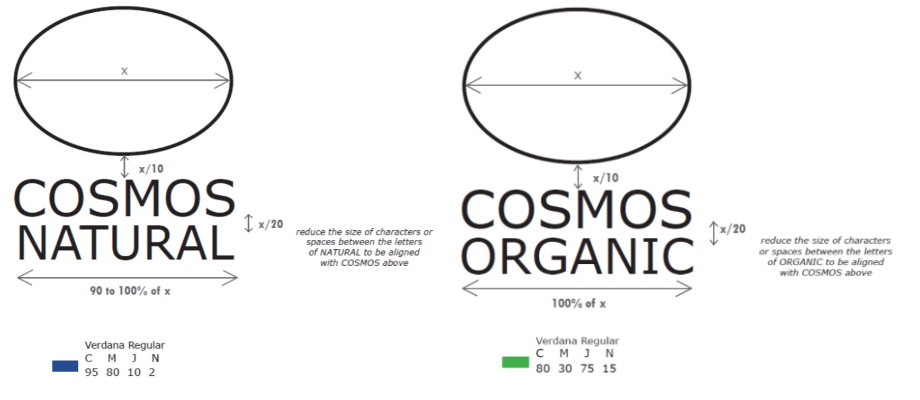ECOCERT and COSMOS labels – The standard for organic and natural cosmetics
15
May

Skincare cosmetics, including organic and natural ones, have become one of the major parts of the entire cosmetic market. According to 2017 consumer research conducted in the United States, more than half of consumers, both men and women, have purchased skincare cosmetics labelled as natural or organic. Nearly 70% of American consumers aged 18-29 claimed that they preferred natural and organic skincare products, while in the 30-59 age group this preference is shared by 60%.
Consumers analyze symbols displayed on product labels, seeking confirmation that the cosmetic products they buy are organic or natural. This need is met by various certification organizations. Certification reassures consumers that the products they purchase as organic or natural have been audited by an independent certification body throughout the entire supply chain according to commonly accepted industry standards and specified criteria.
ECOCERT, established in France in 1991, is one of such organizations. It specializes in certification and control of eco-friendly products: food and food products, cosmetics, detergents, perfumes and textiles.
In 2002 ECCOCERT introduced quality control services for natural and organic cosmetics, which in the following years led to the establishment – together with other organizations and institutions, such as Soil Association (UK), Cosmebio (France), BDIH (Germany), ICEA (Italy) – of the internationally recognized COSMOS standard.
The aim was to establish common minimum requirements, harmonize certification rules for organic and natural cosmetics and establish institutions for the sector.
„COSMetic Organic and natural Standard”
COSMOS is an abbreviation for ‘COSMetic Organic and natural Standard’. Thanks to a unified standard any type of cosmetic product can undergo certification, sustainable development can be successfully promoted and certified raw materials – coming from organic farming – can increase their share in the industry. Additionally, consumers have obtained more transparency.
COSMOS specifies raw materials selection as well as formulation requirements for natural and organic cosmetics. ECOCERT approves the percentage content of ingredients of natural origin and certified organic ingredients that need to be listed on the label.
In the process of international harmonization, the requirements for manufacturing, packaging and storage have been standardized, including COSMOS-compliant cleaning products.
Also guidelines for labelling certified cosmetics have been developed: COSMOS NATURAL and COSMOS ORGANIC seals, in combination with a seal from any of the competent certifying organizations, for instance ECOCERT. They specify details like font size and color, as well as requirements concerning the size of the entire logotype.

COSMOS NATURAL and COSMOS ORGANIC - What's the difference?
The logos below, when displayed on product packaging, serve to inform consumers that a given cosmetic product has been COSMOS-certified by a certification organization, whose seal must also appear on the packaging. Whether a product is labelled as NATURAL or ORGANIC depends on the content of organic ingredients in its formulation.
COSMOS ORGANIC
- Minimum 20% of organic ingredients (with the exception of rinse-off products, non-emulsified, water-based products, and 80% mineral products, where 10% of organic ingredients is required)
- At least 95% of the physically processed agricultural ingredients must be organic. Label lists the percentage content of ingredients coming from organic farming.
- Label lists the percentage content of ingredients of natural origin. It is not required, if a product is 100% organic or 100% natural.
- In the INCI list the ingredients are labelled with the wording ''from controlled organic production'' for physically processed agricultural ingredients and ''produced from organic ingredients'' for chemically processed agricultural ingredients.
COSMOS NATURAL
- No minimum required content of organic ingredients.
- Raw materials should meet the criteria for each category of ingredients approved for use by COSMOS.
- Product label displays the percentage content of ingredients of natural origin. It is not required, if a product is 100% organic or 100% naturally derived.
In both cases max. 2% of petrochemical content is permitted in the finished product.
In principle, the Convention on International Trade in Endangered Species of Wild Fauna and Flora (CITES) must be respected and no genetically modified organisms (GMOs) and their derivatives are used. Further criteria for meeting the standard can be found at www.cosmos-standard.org.
COSMOS NATURAL and COSMOS ORGANIC in practice
But what, for example, is the difference between an "organic mint foot balm" and an "organic foot balm with mint"?
The label should describe the product in clear and precise terms. The commercial description as well as product name must precisely define the cosmetic product so that it does not mislead or confuse consumers.
- A product labelled as ‘organic mint foot balm’ has to contain organic mint and be compliant with other material aspects of the COSMOS standard.
- If a product does not contain organic mint but still has enough organic ingredients according to the COSMOS standard, it can be labelled as ‘organic foot balm with mint’.
The COSMOS-standard signature is a consumer guarantee for organic and natural cosmetics that can be trusted. To date over 17,000 products in 60 countries carry the COSMOS ORGANIC or COSMOS NATURAL signature. Over 7,000 ingredients carry the COSMOS CERTIFIED signature.
Sources:
- www.statista.com/statistics/714344/skin-care-natural-organic-product-consumer-preference-by-age-group-us/
- www.researchgate.net/publication/329041383_An_Exploratory_Study_of_Consumer_Attitudes_Toward_Green_Cosmetics_in_the_UK_Market
- www.ecocert.com/en
- www.cosmos-standard.org/
- https://www.cosmos-standard.org/documents-and-databases
- Requirements for natural cosmetics, training materials TÜV SÜD Polska Sp. z o.o.
- www.cosmosstandard.files.wordpress.com/2018/08/cosmos-standard-labelling-guide-v3-0.pdf


Comments are disabled for this post.